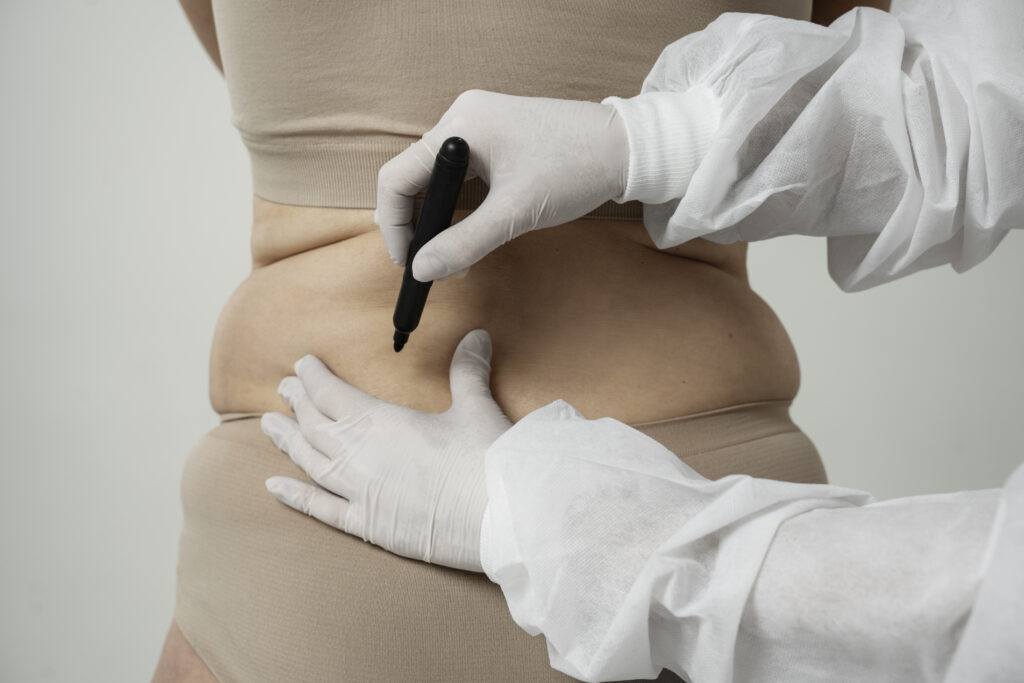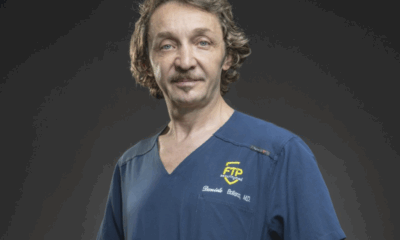Medical doctors and Surgeons
Post-Bariatric Surgery: physical and psychological transformation
Abdominoplasty, mastopexy, and arm and thigh lifts are the main post-bariatric plastic surgery procedures. The goal is to correct the effects of significant weight loss in patients suffering from pathological obesity. Substantial weight loss often results in excess skin and fatty tissue in various parts of the body. To address these issues, post-bariatric surgery focuses not only on aesthetic outcomes but also on functional aspects to improve patients’ quality of life.
«The patient who achieves a normal weight regains a normal life without the handicap of pathological obesity. There is a recovery not only of physical appearance but also of emotional well-being. It’s a procedure that goes beyond removing excess skin; it also serves a functional purpose», explains Paolo Persichetti, director of the Department of Plastic, Reconstructive, and Aesthetic Surgery at the Campus Bio-Medico University in Rome.
Areas targeted in Post-Bariatric Surgery
The most commonly treated areas include the abdomen, chest, breasts, thighs, arms, and face. Excess skin and fat deposits can interfere with daily activities such as walking or interpersonal interactions. Additionally, excess tissue in the abdominal area can cause chronic infections like intertrigo and fungal infections due to prolonged skin-to-skin contact.

«Problematic areas such as thighs and abdomen can be surgically treated. For example, with the abdomen, we can achieve a suspension of the pubic area, placing the genital area in a more physiologically appropriate condition compared to the preoperative state», says Persichetti.
The chest, arms, and face are also affected by the loss of skin elasticity and ligament support, which maintain the shape of certain features, such as the breasts. «There is often a complete loss of the anatomy of these areas and, particularly in women, a loss of volume. In men, the appearance tends to be more gynecoid rather than android – continues Persichetti. – These procedures not only prevent potential skin infections or dystrophies but also restore the chest to an ideal condition, allowing the individual to recognize and accept it as their own».
Regaining physical shape and boosting self-esteem
The psychological aspect in post-bariatric surgery plays a key role. Regaining a physical form that aligns with a new lifestyle boosts self-esteem and motivates patients to maintain their postoperative weight. This, indeed, is a similarly complex journey. «Those who undergo bariatric surgery do not regain excessive weight, but this is not solely due to the surgery’s effects. Patients must also manage their diet to preserve the results achieved».

There is a link between plastic surgery and weight maintenance. People who choose to undergo these procedures are often more motivated to maintain a healthy lifestyle, not only to preserve the aesthetic results but also to avoid returning to pre-surgery conditions. In rare cases – explains the professor – some patients might regain some of the lost weight. However, plastic surgery provides the necessary push to adhere to a healthier diet and physical routine.
«The value and motivation of the patient influences the acceptance and recovery of their body image. It is, after all, the patient’s decision to undergo surgery. Plastic surgery in the treatment of bariatric patients is crucial. It helps give individuals the right motivation to maintain the weight they have achieved», concludes Persichetti.




































